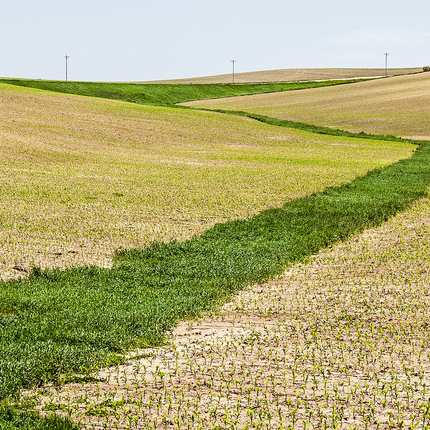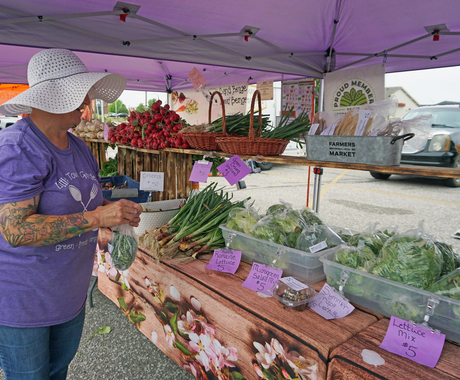By Katie Rock, former staff member
Recently, small business owners alongside alumni of the Leopold Center for Sustainable Agriculture, at Iowa State University, met at the Iowa capitol to advocate on the Leopold Center’s behalf.
Last year, the Iowa Legislature defunded and nearly eliminated the Leopold Center by repealing a tax on fertilizer, which provided its funding. By doing so, lawmakers cut a driving force in addressing water quality and revitalizing rural communities.
While Iowa may be behind on water quality, there is one area where the state leads in crafting solutions. Of the 12 states in the Gulf of Mexico Hypoxia Task Force of 1997, Iowa leads in research identifying best management practices for farms to reduce nutrient loss. Results on the impacts of cover crops, saturated buffers, prairie strips, and bioreactors from the Leopold Center have been used in other Midwestern states.
The Leopold Center also helps rural Iowa communities. By using small feasibility studies, the organization has helped leverage thousands of outside grant dollars to help launch a number of small farms and businesses. These feasibility studies typically cost between $5,000 and $30,000.
Among grant recipients sharing their stories at the capitol were Ellen and Dan Walsh-Rosmann, of Harlan, Iowa, who own and operate an organic farm, along with Farm Table Delivery, a food hub with more than $1 million in sales. In 2013, Farm Table Delivery was launched with guidance from a feasibility study on regional food hubs. They used the study as a resource to map a business model and marketing plan. Continued guidance and research from the Leopold Center allowed the couple to expand their farm and wholesale distribution services with Milk & Honey, a farm-to-table restaurant, in June 2015. The Leopold Center also assisted by providing staff during Ellen’s maternity leave.
Also in attendance was Nick Wuertz, director of refugee services at Lutheran Services of Iowa, where he manages the Global Greens program. Wuertz initiated the program with the help of a $7,000 feasibility study supported by the Leopold Center. From those findings, he began connecting refugee families with small garden plots in the Des Moines metro area. Successful families advanced through Global Green’s training and marketing incubator program to expand sales and plan their businesses. After only five years, the first families in the program now run their own small farms.
The Leopold Center also tests and develops new potential plants, from biomass crops to native fruits and vegetables to locally-grown hops. By widening the scope of agriculture in Iowa, the Leopold Center’s research plays a role in building vibrant, rural communities, and creating new leaders.
The Leopold Center’s goals are to identify and develop new ways to farm profitably while conserving natural resources as well as reducing negative environmental and social impacts.



